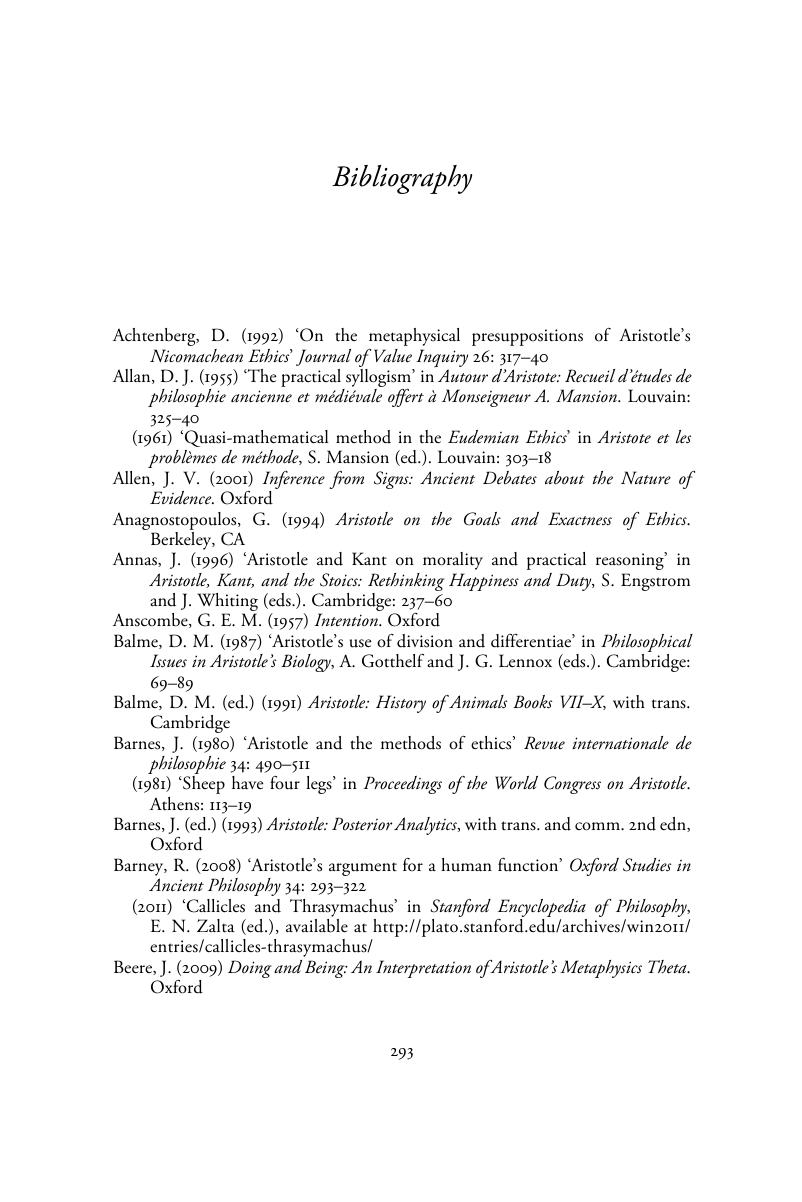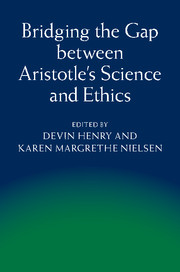Book contents
- Bridging the Gap Between Aristotle’s Science and Ethics
- Bridging the Gap Between Aristotle’s Science and Ethics
- Copyright page
- Contents
- Notes on contributors
- Preface
- Book part
- Ancient works
- Introduction
- Part I Ethical first principles
- Part II Enquiry and explanation
- Part III Ethics and the natural sciences
- Bibliography
- Index
- References
Bibliography
Published online by Cambridge University Press: 05 May 2015
- Bridging the Gap Between Aristotle’s Science and Ethics
- Bridging the Gap Between Aristotle’s Science and Ethics
- Copyright page
- Contents
- Notes on contributors
- Preface
- Book part
- Ancient works
- Introduction
- Part I Ethical first principles
- Part II Enquiry and explanation
- Part III Ethics and the natural sciences
- Bibliography
- Index
- References
Summary

- Type
- Chapter
- Information
- Bridging the Gap between Aristotle's Science and Ethics , pp. 293 - 302Publisher: Cambridge University PressPrint publication year: 2015

